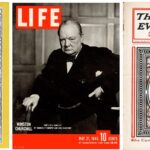 To use a cliche, the people have spoken. The election is over, and now the president must get back to work. He has a so-called “mandate” this time around, but he still takes to the track with an anchor tied around his feet–this time one of his own making. Federal tax revenues are $100 billion lower than when the president took office, and yet government spending is $400 billion higher, according to report in today’s New York Times. For the economy, the president has promised that he will begin work to tax investment even less, and that he will work to privatize, at least partly anyway, Social Security. Even though such efforts will take some pressure off the system, establishing them will cost some $2 trillion dollars over the next 20 years. Federal budget deficits are expected to grow to $5 trillion if Bush’s tax cuts are made permanent.
To use a cliche, the people have spoken. The election is over, and now the president must get back to work. He has a so-called “mandate” this time around, but he still takes to the track with an anchor tied around his feet–this time one of his own making. Federal tax revenues are $100 billion lower than when the president took office, and yet government spending is $400 billion higher, according to report in today’s New York Times. For the economy, the president has promised that he will begin work to tax investment even less, and that he will work to privatize, at least partly anyway, Social Security. Even though such efforts will take some pressure off the system, establishing them will cost some $2 trillion dollars over the next 20 years. Federal budget deficits are expected to grow to $5 trillion if Bush’s tax cuts are made permanent.
“Making the job more difficult, politically as well as economically, is that higher oil prices have slowed American growth even as job creation continues to languish,” writes Times reporter Edmund Andrews. “Consumer and business confidence have slipped markedly in the last few months. And while oil prices declined modestly over several days until a $1.26-a-barrel rise on Wednesday, most forecasters are expecting economic growth to slow to 3 percent in 2005 from about 4 percent this year.
“Slower growth would aggravate Mr. Bush’s budget problems,” Edmunds writes. “The war in Iraq and the continued occupation of Afghanistan could exceed $100 billion next year, according to a Republican analyst. None of that has been included in an administration plan for reducing the budget deficit by half over five years.”
There is a good article in the current New Yorker that looks at the looming financial disaster upon us. A couple paragraphs from the editors: “What has the country received in return for mortgaging its future? The President says that his tax cuts lifted the economy before and after 9/11, thereby moderating the downturn that began with the Nasdaq’s collapse in April, 2000. It’s true that even badly designed tax cuts can give the economy a momentary jolt. But this doesn’t make them wise policy. “Most of the tax cuts went to low- and middle-income Americans,†Bush said during his final debate with Senator John Kerry. This is false—a lie, actually—though at least it suggests some dim awareness that the reverse Robin Hood approach to tax cuts is politically and morally repugnant. But for tax cuts to stimulate economic activity quickly and efficiently they should go to people who will spend the extra money. Largely at the insistence of Democrats and moderate Republicans, the Bush cuts gave middle-class families some relief in the form of refunds, bigger child credits, and a smaller marriage penalty. Still, the rich do better, to put it mildly. Citizens for Tax Justice, a Washington research group whose findings have proved highly dependable, notes that, this year, a typical person in the lowest fifth of the income distribution will get a tax cut of $91, a typical person in the middle fifth will pocket $863, and a typical person in the top 1 percent will collect a windfall of $59,292.
“These disparities help explain the familiar charge that Bush will likely be the first chief executive since Hoover to preside over a net loss of American jobs. This Administration’s most unshakable commitment has been to shifting the burden of taxation away from the sort of income that rewards wealth and onto the sort that rewards work. The Institute on Taxation and Economic Policy, another Washington research group, estimates that the average federal tax rate on income generated from corporate dividends and capital gains is now about 10 percent. On wages and salaries it’s about 23 percent. The President promises, in a second term, to expand tax-free savings accounts, cut taxes further on dividends and capital gains, and permanently abolish the estate tax—all of which will widen the widening gap between the richest and the rest.â€
Do you remember the term that Bush’s father used in his campaign against Bill Clinton? I think it applies here: fuzzy math.





